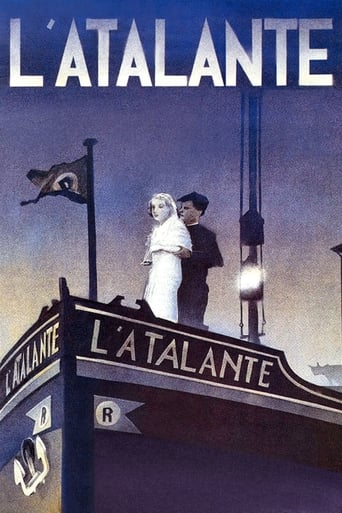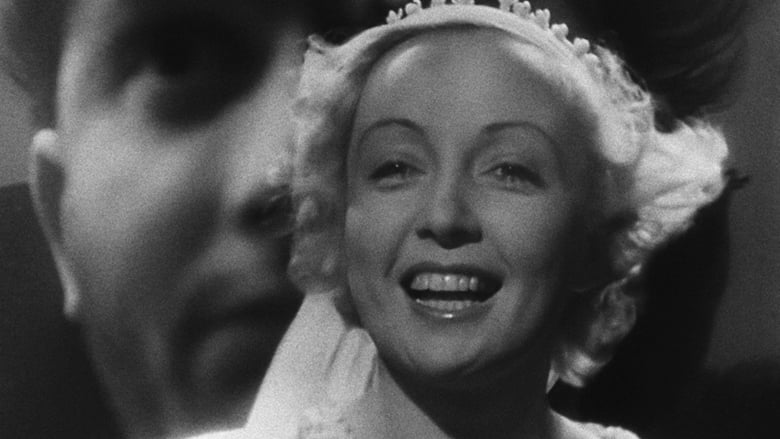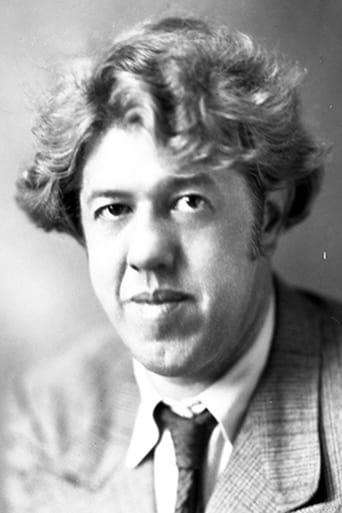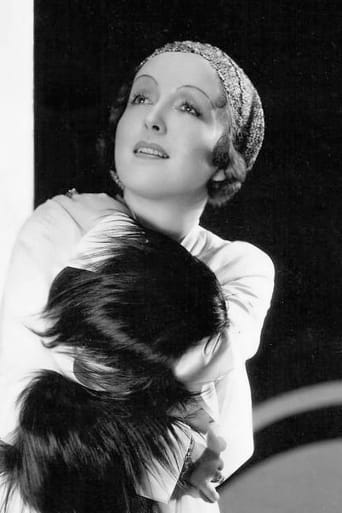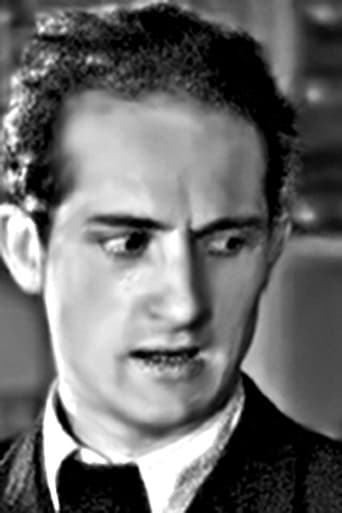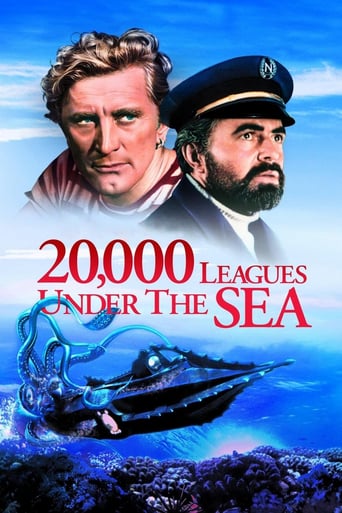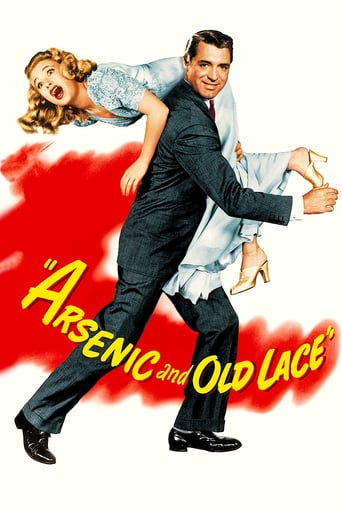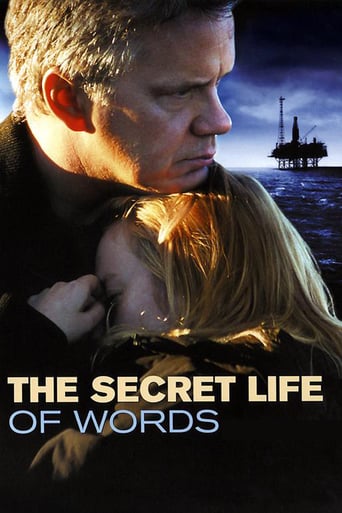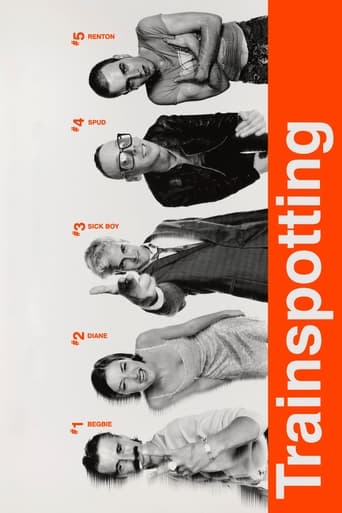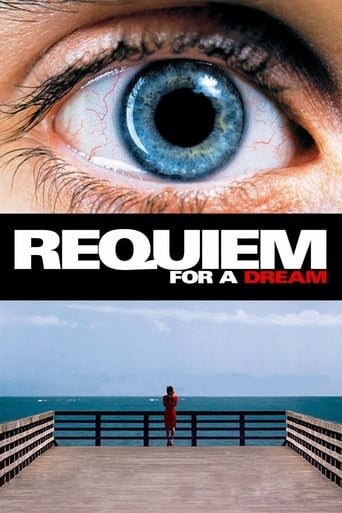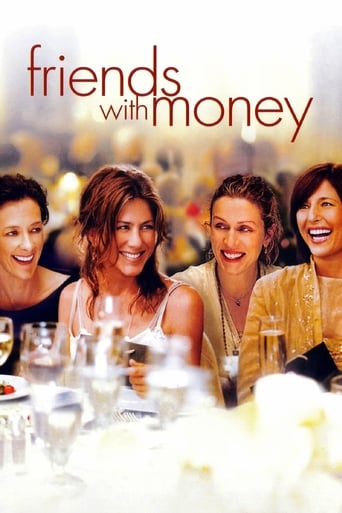L'Atalante (1934)
Capricious small-town girl Juliette and barge captain Jean marry after a whirlwind courtship, and she comes to live aboard his boat, L'Atalante. As they make their way down the Seine, Jean grows weary of Juliette's flirtations with his all-male crew, and Juliette longs to escape the monotony of the boat and experience the excitement of a big city. When she steals away to Paris by herself, her husband begins to think their marriage was a mistake.
Watch Trailer
Cast


Similar titles
Reviews
Why so much hype?
Tied for the best movie I have ever seen
A Disappointing Continuation
It was OK. I don't see why everyone loves it so much. It wasn't very smart or deep or well-directed.
I have mixed feelings about this one: the history of its editing is so long, complicated and all the more dramatic that Vigo died just after having finished it. Famous director Truffaut passion for it is contagious. The story is original even today (the way to become a sailor wife on a ship) and some moments are really beautiful and poetic and offers a vision of Paris faraway of cliches of the city of light and closer to Eraserhead world...But i'm french and this is France and i just can't stand this old, rustic country! It's always the same thing: With King Kong, America just showed how past and future could rejoice while in France, this boat tale doesn't exit a dark, gloomy country, with no comfort, peasant traditions, no visions for a bright future! Actor Simon is a very painful character to watch, between Quasimodo and Planet of Apes, no hygiene, drunk, half mad: for me, he is the anchor that drowns the ship!At the end, Vigo could claim some rights to Cameron Titanic because its poster (Atalante) is clearly the inspiration for the cult moment at the bow (Titanic)!
There are startling bursts of imaginative visuals that make you sit up and take notice and they definitely enhance the slight story of the new marriage between a small-town girl and a river barge captain. The visuals make you wonder what kind of filmmaker Jean Vigo would have become before passing at age twenty-nine. Based on the bold long shots of the Seine that both open and close the film (especially the aerial tracking shot at the finale), it almost weirdly feels as if Vigo would feel at home today as an action director along the lines of Ridley Scott or Guillermo del Toro; but it also feels, with his intimate, searching facial close-ups, that he would be just as effective working in the romance genre. Unfortunately, there simply isn't enough story to put Vigo's talents fully to use, though the actors he employs (Dita Parlo and Jean Daste as the newlyweds and, especially, Michel Simon as the first mate) are entertaining. The film, as a whole, though, leaves less an impression of what is than one of what could have been.
As I am writing this review in 2014, this movie celebrates its 80th anniversary. Some years ago it was considered the greatest movie ever. It's a pretty good movie indeed, but claiming it as the best ever is a perfect nonsense. As the movie is celebrating its 80th anniversary, the critics seem to be a little more reasonable, considering it now the 12th greatest movie ever. Claiming it as the 12th greatest ever is a nonsense too, but better that than claiming it as the greatest of all.That said, this is a movie with significant historical and sentimental value. It was the first and last full-length film directed by the promising young director Jean Vigo, who was taken away from us too soon. Jean Vigo only directed two documentary movies ("À propos de Nice" and "Taris, roi de l'eau") and one controversial featurette ("Zéro de conduite"). "L'Atalante" would be his first and only full-length motion picture. He always had a fragile health but his illness worsened considerably when he directed "L'Atalante" and that finished him off. Although he knew he was going to die soon, he still wanted to make the movie until the end. You can say that he gave his life to make this movie. Despite his short movie career he left his mark and later influenced french directors such as François Truffaut and the French New Wave."L'Atalante" was also released under the interesting alternative title «Le chaland qui passe». It's as simple and basic as a movie can be. Even though it takes place mostly inside a crude river barge, it also has nice sights of some french village in the beginning and later some lovely sights of the gorgeous city of Paris. And a good thing they did that, because if the whole thing was inside an ugly cargo ship, it would have been boring.Generally speaking, the characters are nothing too special, despite the good performances by the respective actors.Jean Dasté is Jean, whom I have a divisive opinion about. On one hand he is quite funny at times, but on the other hand he shows he is impulsive and bossy. To be honest, sometimes he really is a douche, especially towards the cats and his wife.Dita Parlo is Juliette (Jean's wife). She isn't particularly charming and not really hot in nature, but she is usually a decent woman and fine-looking rather than a "fatal attraction".Michel Simon is Père Jules, an eccentric old sailorman. While his moral nature is questionable (well, you wouldn't expect anything but lack of politeness from a sailorman), he is a fun and entertaining character. Louis Lefebvre is the cabin boy with a bizarre voice. Not much of a character, although there are some funny scenes with him.Gilles Margaritis is the street peddler. He is the funniest character of the film. I know that he wasn't supposed to have much of a role, but still it's a shame that his role wasn't bigger. Plus, in a way I think that Juliette should have ended up with him instead of going back to Jean.The soundtrack is nice, especially the Main Theme and the music that is played in the nightclub where Jean and Juliette meet the street peddler.The french of this movie can be really difficult to understand. Extra-attention is required to understand it as much as possible, because the language is often spoken very quickly. That characteristic is particularly notorious on Michel Simon, although part of the reason could be his nationality (he was swiss, and the swiss french has its peculiarities).In theory that is not so bad if you've got subtitles, but if you don't... on the other hand, even with subtitles, for people who want to understand, feel and learn the french, it can be quite hard to understand the thunder-paced french in this movie.Title in Portugal: 'O Atalante'.
I didn't realise that director Jean Vigo only made four films before dying at a young age, this film and Zero for Conduct are the two that appeared in the book 1001 Movies You Must See Before You Die, so naturally I had to watch. Basically the L'Atalante is a canal barge, and the captain Jean (Jean Dasté) has married Juliette (Dita Parlo), despite not meeting much, and after a march they start their trip together. They are travelling between Le Havre and Paris on the barge with a cargo delivery, while on honeymoon, and there are tensions between the hardly used crew members. But the bigger conflict with tempers flaring and things smashed comes when Jean is jealous of Juliette having an affair with first mate and obsessive cat lover Père Jules (Michel Simon). Another argument and scuffle comes while in Paris and a Peddler (Gilles Margaritis) who wants to run off with Jean's wife, but having become tired of barge life she runs off anyway. Jean starts suffering near-catatonic depression having furiously left Juliette behind after casting off, and he tries a few things to try and get over it, but they do not work. Juliette meanwhile has found nothing but despair and crime since going onto the mainland, and it is only after Jean tries to kill himself jumping into the river that they are both reunited, and in the end they are happy once again together. I will be absolutely honest, and say that this explanation for what happens in the film is not something I would have recalled myself. Also starring Louis Lefebvre as Cabin Boy, Fanny Clar as Juliette's Mother, Raphaël Diligent as Raspoutine, Juliette's Father and René Blech as Best Man. I did not understand everything that was going on to be honest, but the relationship between the main characters was good, the realistic documentary style material for life on the barge is alright, and I can see that it did start influence the French New Wave of cinema, from what I did understand it is a most watchable romantic drama. Very good!

